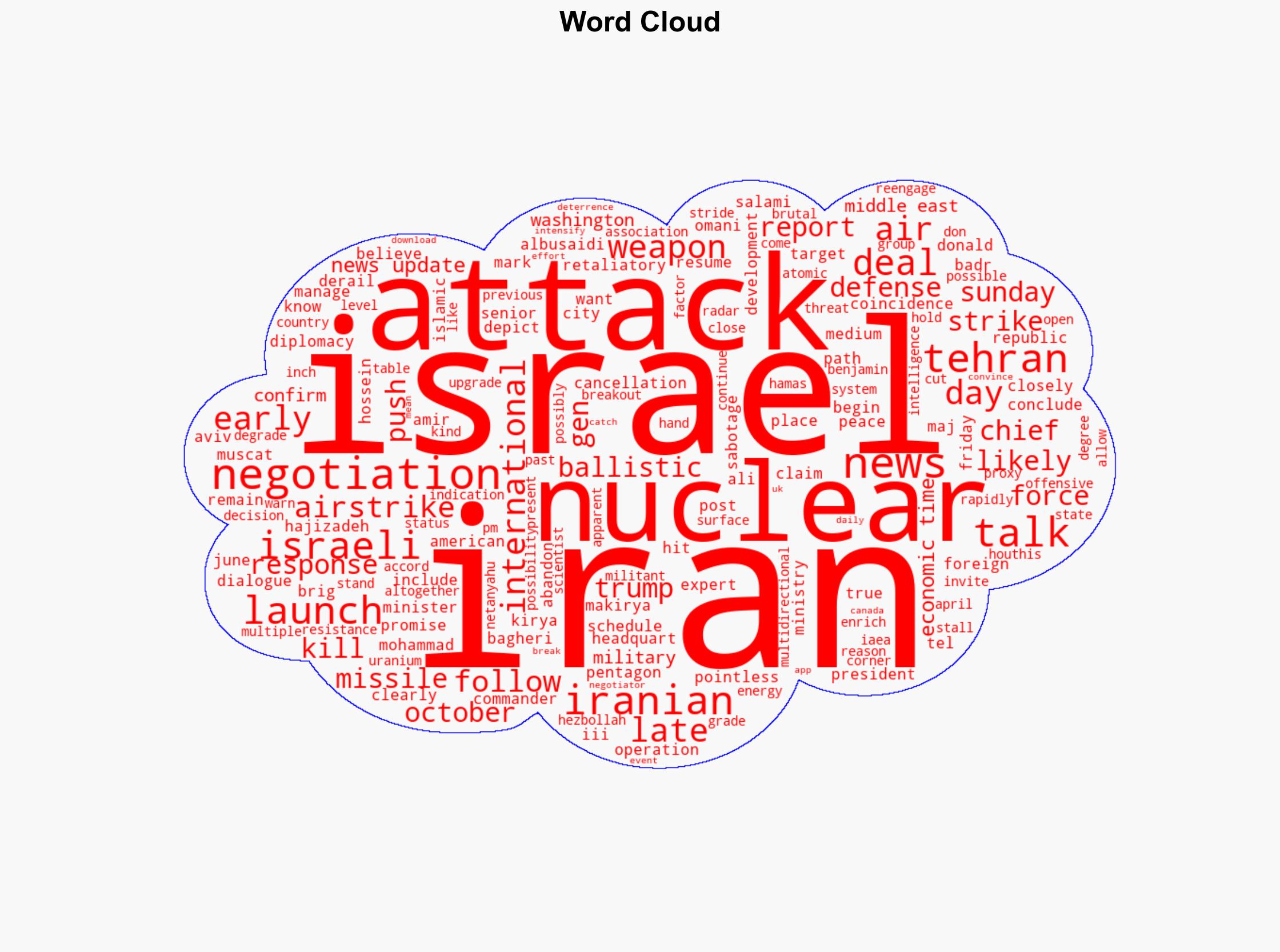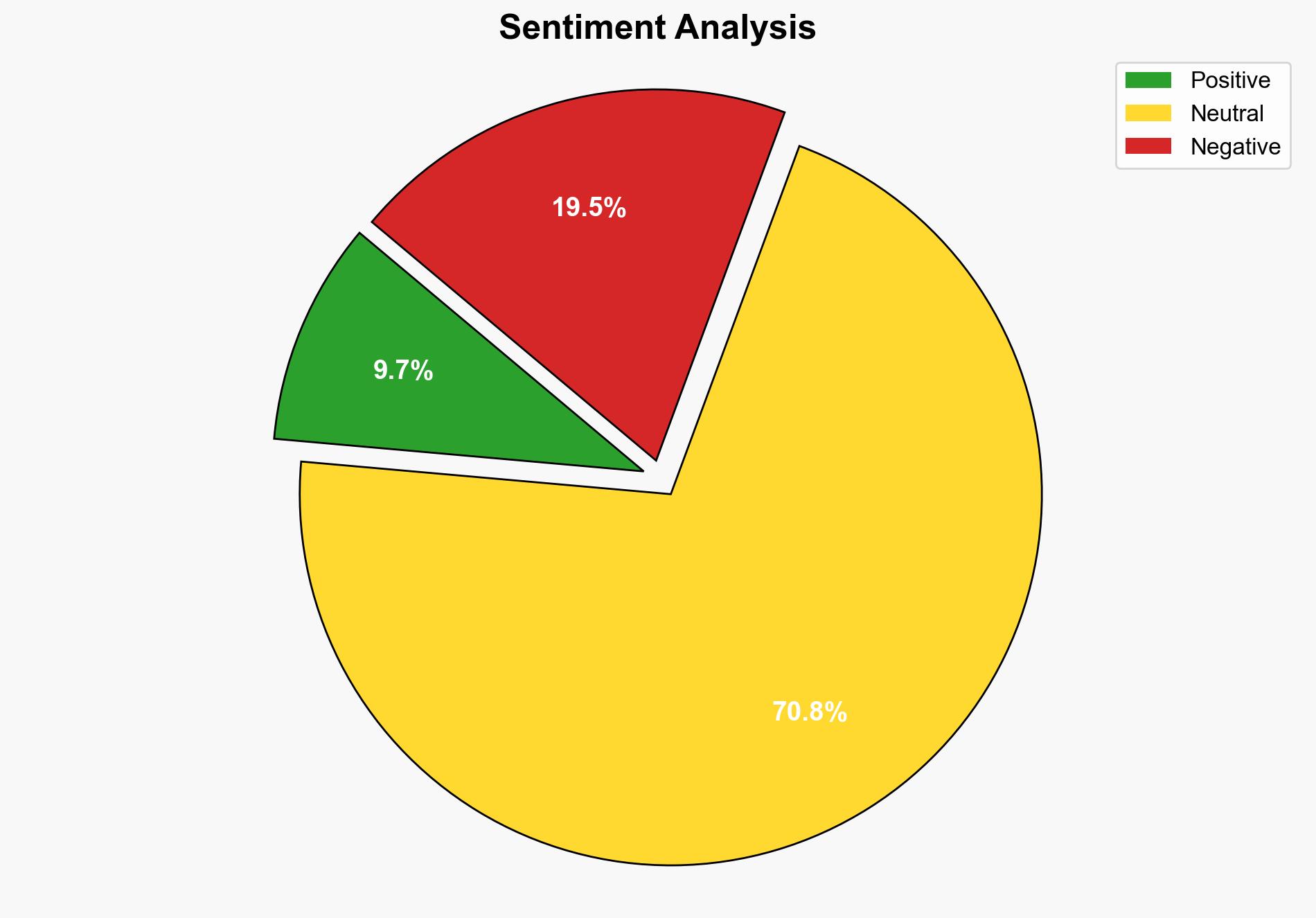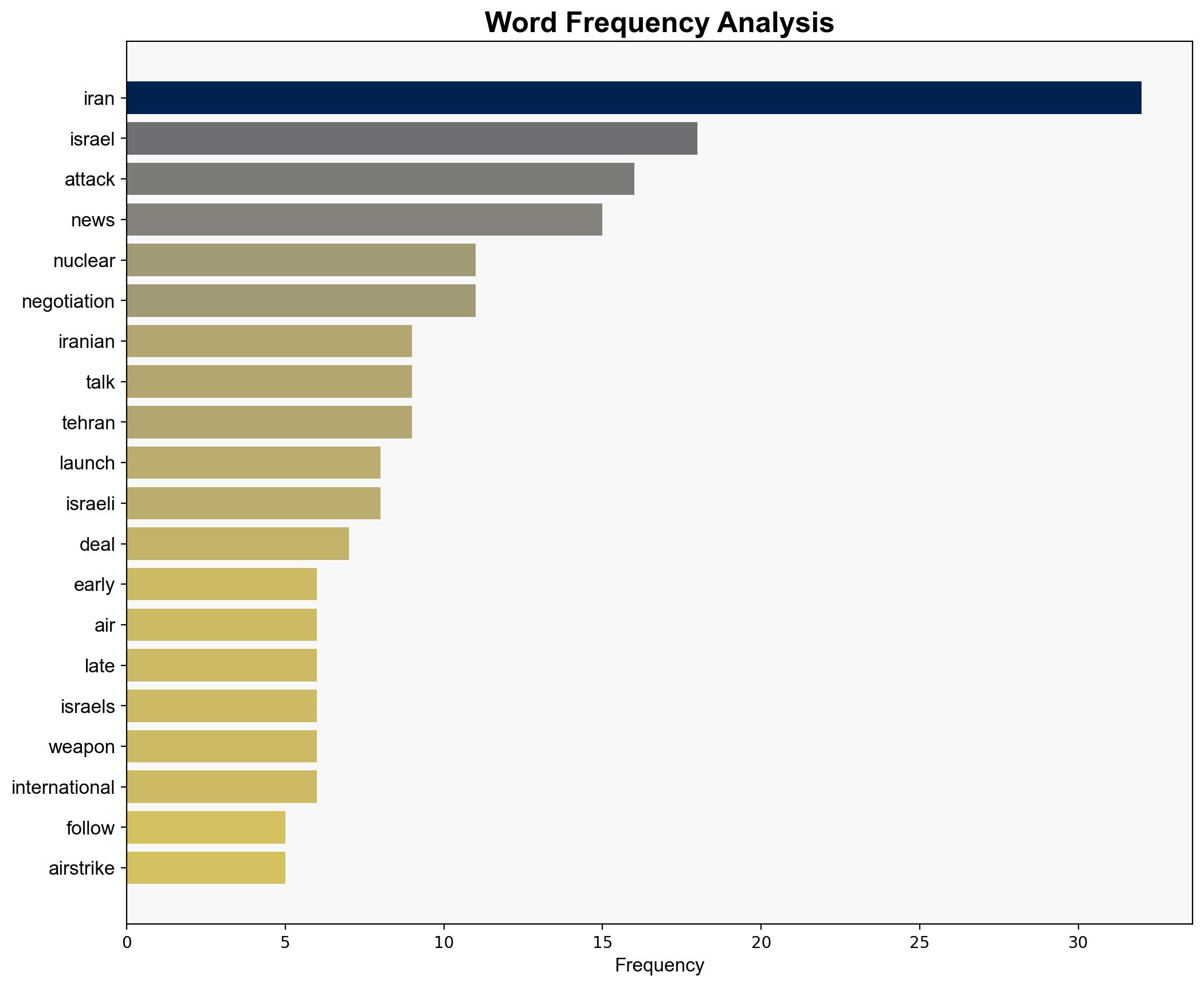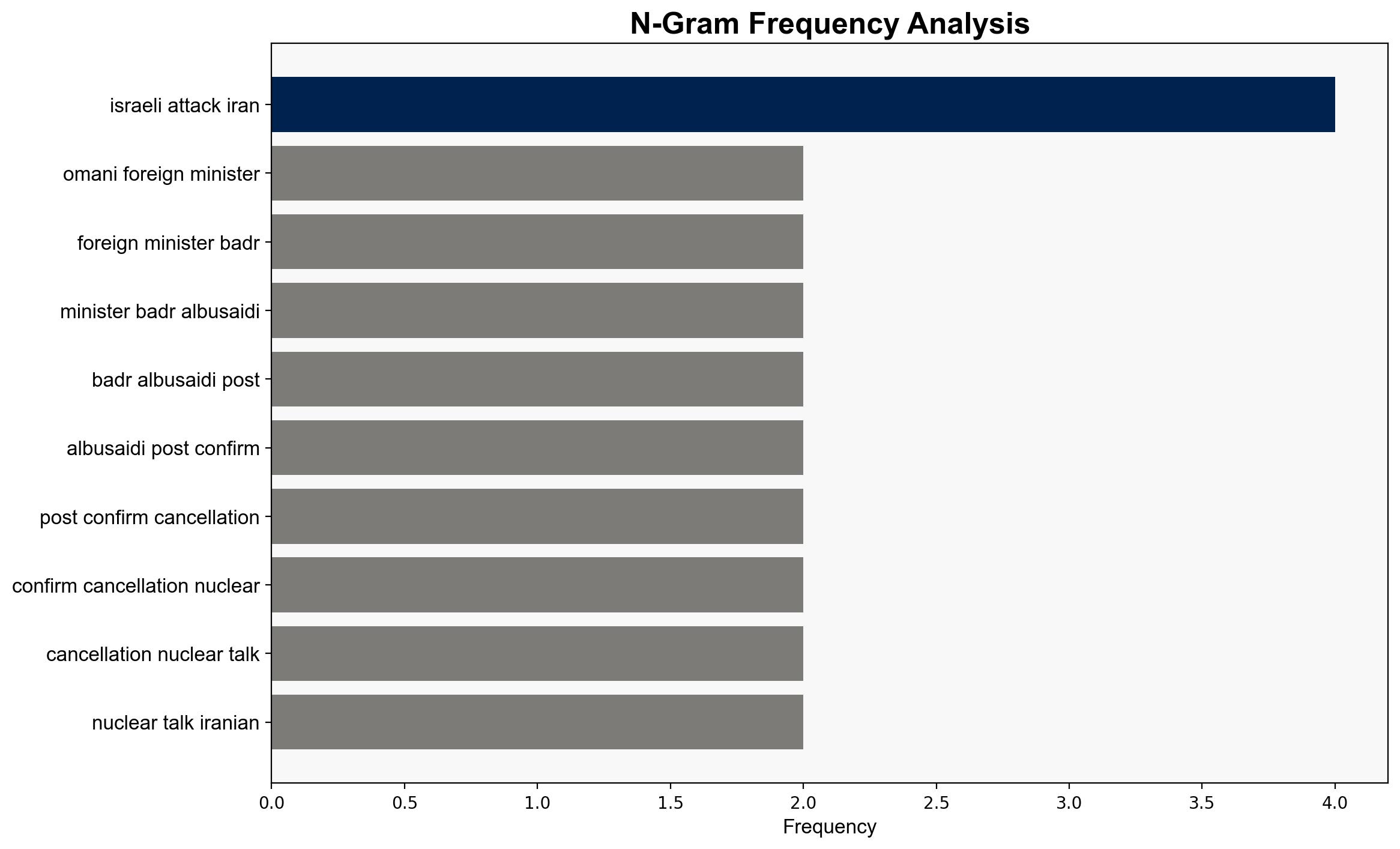Iran-US nuclear talks shot down by Israeli attacks what it means for Middle East and Tehrans path to acquire nukes – The Times of India
Published on: 2025-06-14
Intelligence Report: Iran-US Nuclear Talks Disrupted by Israeli Attacks – Implications for the Middle East and Tehran’s Nuclear Ambitions
1. BLUF (Bottom Line Up Front)
The recent Israeli airstrikes on Iranian military and nuclear infrastructure have significantly disrupted the Iran-US nuclear negotiations. This escalation increases regional tensions and may accelerate Iran’s nuclear ambitions. Immediate diplomatic interventions are necessary to prevent further destabilization in the Middle East.
2. Detailed Analysis
The following structured analytic techniques have been applied to ensure methodological consistency:
ACH 2.0
Analyzing the situation suggests Israel’s intent to derail the nuclear talks, potentially to prevent Iran from advancing its nuclear capabilities. The airstrikes appear strategically timed to coincide with the negotiations, indicating a deliberate effort to influence diplomatic outcomes.
Indicators Development
Monitoring of Iranian military movements and communications suggests a heightened state of readiness, indicating potential retaliatory actions. Increased online propaganda from Iranian proxies hints at coordinated regional responses.
Narrative Pattern Analysis
Iranian media narratives emphasize resistance and retaliation, potentially inciting further regional instability. The portrayal of Israeli actions as aggressive may bolster recruitment efforts among aligned groups.
3. Implications and Strategic Risks
The breakdown in negotiations heightens the risk of military escalation between Israel and Iran, with potential spillover into neighboring countries. Cybersecurity threats may also increase as both nations potentially engage in cyber warfare. Economic sanctions and diplomatic isolation could further destabilize Iran, impacting global oil markets.
4. Recommendations and Outlook
- Encourage immediate diplomatic engagement between involved parties to de-escalate tensions.
- Enhance intelligence monitoring of Iranian military activities and regional proxy groups.
- Scenario-based projections:
- Best Case: Resumption of negotiations with international mediation, leading to a temporary de-escalation.
- Worst Case: Full-scale military conflict involving regional allies, disrupting global markets.
- Most Likely: Continued low-intensity conflicts with intermittent diplomatic efforts.
5. Key Individuals and Entities
Hossein Salami, Mohammad Bagheri, Amir Ali Hajizadeh, Benjamin Netanyahu
6. Thematic Tags
national security threats, Middle East tensions, nuclear proliferation, regional stability




